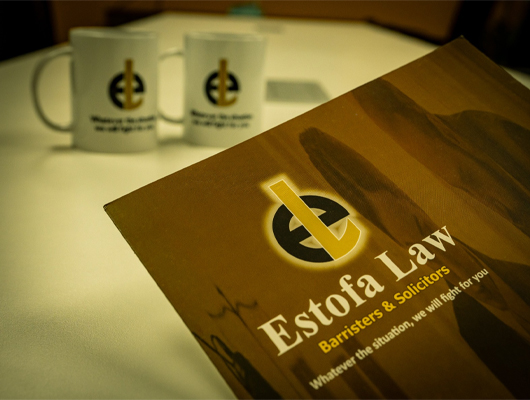Joint ownership in real estate refers to a property ownership arrangement where two or more individuals share the rights and responsibilities associated with a property. While this arrangement can offer several advantages, such as shared financial burdens and increased accessibility, it also comes with significant legal implications and risks that owners should consider. This blog post will explore these aspects and provide insights for individuals looking to navigate joint ownership, particularly in Ontario.
Understanding Joint Ownership Types
There are primarily two types of joint ownership in real estate: Joint Tenancy and Tenancy in Common.
Joint Tenancy
In a joint tenancy, all owners share equal ownership rights. A key feature of this arrangement is the right of survivorship, which means that if one owner passes away, their share automatically transfers to the surviving owners. This can simplify estate planning but may not always align with the deceased’s wishes, particularly if they intended to leave their share to someone outside the joint owners.
Tenancy in Common
In contrast, a tenancy in common allows owners to hold unequal shares of the property. Each owner can sell or transfer their interest independently, and there is no right of survivorship. This flexibility can be advantageous, but it also introduces complexities, especially when one owner wants to sell their share while others do not.
Understanding these types of joint ownership is crucial, especially for those seeking legal advice from a Real Estate Lawyer Burlington or another area within Ontario.
Legal Implications of Joint Ownership
- Title Issues: When property is co-owned, the title must accurately reflect each owner’s interest. If the title is unclear or incorrectly recorded, it can lead to disputes and complications when selling the property or transferring ownership.
- Financing Considerations: Joint owners may need to secure financing together, which means all parties are responsible for the mortgage. If one owner fails to make payments, the other owners may need to cover the shortfall or risk foreclosure.
- Estate Planning Concerns: Joint ownership can complicate estate planning. While the right of survivorship simplifies asset transfer upon death, it can also lead to unintended beneficiaries. Engaging a Real Estate Lawyer Oakville can help clarify how joint ownership impacts estate planning.
- Liability Risks: Joint ownership means shared liability. If one owner faces legal issues, such as a lawsuit related to the property, all owners may be implicated. It’s vital to assess the financial and legal standing of all parties involved.
- Dispute Resolution: Conflicts can arise among co-owners regarding property use, financial contributions, or decisions about selling the property. Mediation and clear communication strategies can mitigate these risks, but legal assistance from a Real Estate Lawyer Milton may be necessary if disputes escalate.
Advantages of Joint Ownership
Despite the risks, joint ownership can offer several benefits, including:
- Shared Financial Burden: Splitting the costs associated with purchasing and maintaining a property can make real estate more accessible. This can be particularly beneficial for first-time buyers or those investing in vacation properties.
- Investment Opportunities: Joint ownership can allow individuals to pool resources to invest in more expensive properties or develop real estate projects that may be unattainable individually.
- Tax Benefits: Co-owners may benefit from tax deductions related to mortgage interest and property taxes, depending on their individual financial situations.
Risks Associated with Joint Ownership
While joint ownership has its advantages, potential risks cannot be overlooked:
- Financial Disagreements: Disputes over expenses, property improvements, or the sale of the property can create tension among co-owners. It is essential to have a clear agreement outlining each party’s responsibilities and financial contributions.
- Market Risks: The real estate market can be unpredictable. If property values decline, co-owners may find themselves in a difficult position, especially if they cannot agree on selling the property or managing it together.
- Personal Relationship Strains: Joint ownership often involves friends, family members, or partners. If personal relationships sour, it can complicate property management and ownership dynamics.
- Legal Complications: Navigating joint ownership laws can be complex. Seeking guidance from a Real Estate Lawyer Hamilton can help ensure compliance with local regulations and protect each owner’s interests.
- Inheritance Challenges: In the event of a co-owner’s death, issues can arise regarding the deceased’s share of the property. This can lead to potential conflicts with heirs or family members.
Seeking Legal Advice
If you are considering joint ownership, it’s essential to consult with a qualified Real Estate Lawyer Toronto who understands the nuances of real estate law in Ontario. An experienced lawyer can help you navigate the complexities of joint ownership agreements, ensuring that all parties are protected and aware of their rights and responsibilities.
Drafting a Joint Ownership Agreement
Creating a joint ownership agreement is crucial to mitigate risks. This agreement should outline:
- Ownership Shares: Specify each owner’s percentage of ownership.
- Financial Contributions: Detail how expenses will be shared, including mortgage payments, property taxes, and maintenance costs.
- Decision-Making Processes: Establish guidelines for how decisions regarding the property will be made.
- Exit Strategy: Include terms for selling the property or what happens if one owner wishes to exit the agreement.
Conclusion
Joint ownership in real estate can be a beneficial arrangement for many individuals, but it also comes with significant legal implications and risks. By understanding the different types of joint ownership and the potential challenges involved, individuals can make informed decisions and protect their interests. Engaging with a Real Estate Lawyer Burlington, Real Estate Lawyer Oakville, Real Estate Lawyer Milton, Real Estate Lawyer Hamilton, or Real Estate Lawyer Toronto can provide invaluable support and guidance in navigating this complex landscape. Always ensure that your joint ownership agreement is well-drafted and reflects the intentions of all parties involved to foster a smooth and collaborative property ownership experience.
